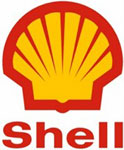 Reuters: Royal Dutch Shell Plc said it would assess any impact of European sanctions on its oil trade with Iran and had stopped some activities there following tougher U.S. measures earlier this year.
Reuters: Royal Dutch Shell Plc said it would assess any impact of European sanctions on its oil trade with Iran and had stopped some activities there following tougher U.S. measures earlier this year.
By Alex Lawler
 LONDON (Reuters) – Royal Dutch Shell Plc said it would assess any impact of European sanctions on its oil trade with Iran and had stopped some activities there following tougher U.S. measures earlier this year.
LONDON (Reuters) – Royal Dutch Shell Plc said it would assess any impact of European sanctions on its oil trade with Iran and had stopped some activities there following tougher U.S. measures earlier this year.
The European Union sanctions over Iran’s nuclear work, launched in July and which became law this week, seek to block oil and gas investment in the Islamic Republic, the world’s fifth largest oil exporter.
“Our trading business with Iran is carried out under longer-term contracts,” Shell’s chief financial officer, Simon Henry, said on Thursday. “We continue to lift (buy Iranian crude) under those contracts, but we do need to assess any implications of the European legislation.”
“It’s fair to say that the European legislation, some of which was only clarified this week, we still need to understand. There are clearly some implications around payment transactions.”
Oil industry sources have said that following the measures financial transactions with Iran have become more difficult, making it harder to pay for Iranian exports in currencies such as the euro and the dollar.
As a result, the sources say that some European oil companies have scaled back their purchases of Iranian oil this year and are reviewing whether to buy Iranian oil in 2011.
Henry said Shell always worked within sanctions and legal requirements and was stopping some business in Iran due to U.S. sanctions passed earlier this year. The U.S. measures did not apply to crude oil trading.
“The amount of activities is relatively low in materiality terms. We don’t have big investments there,” he said.
“We are withdrawing from some small downstream activities and we have been providing technical advice to some of the upstream. But that will all now stop.”
“We stopped supplying refined products last year and we’re not supplying aviation fuel outside Iran.”
Henry was speaking on a conference call after the company reported its third-quarter earnings.
(Reporting by Alex Lawler; Editing by Anthony Barker)


